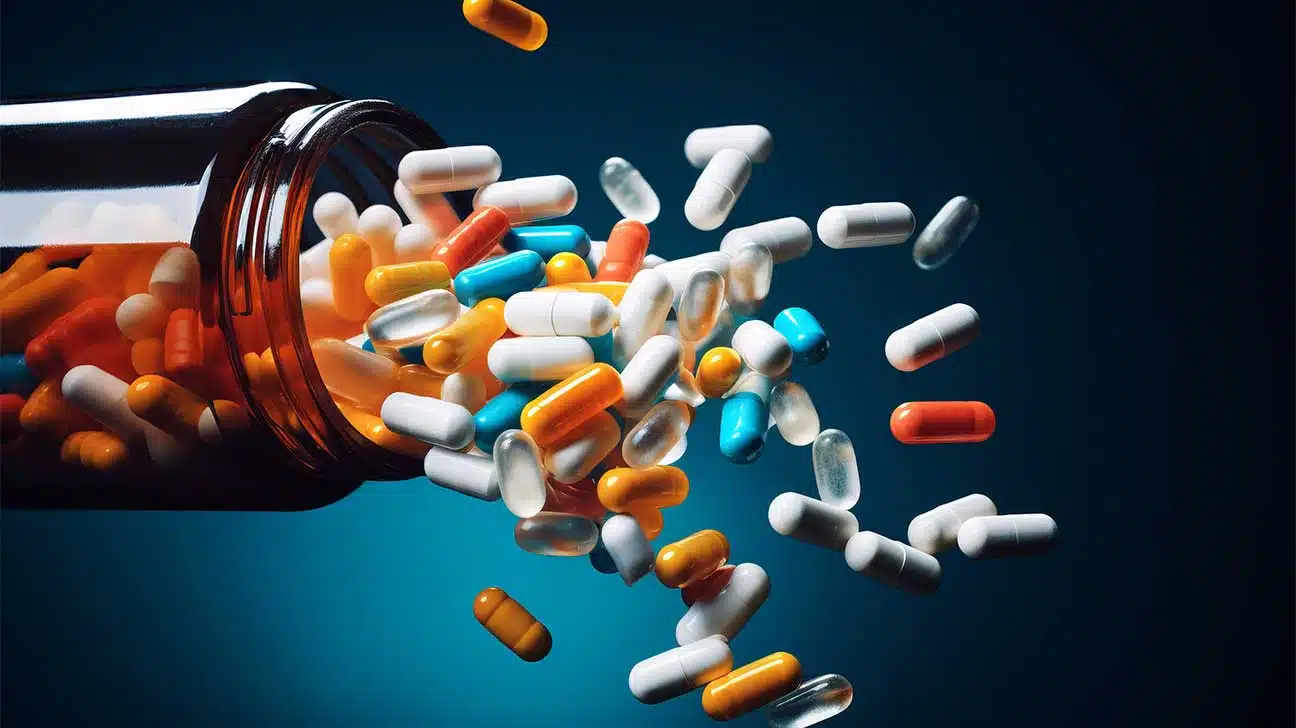
It may depend on the medication, but your right to continue taking prescribed medications while receiving addiction care is protected by the Americans with Disabilities Act (ADA).
There are stipulations when it comes to bringing medications to alcohol and drug addiction treatment centers, including prior approval.
ADA Protections For People With Addictions
As long as a person is in recovery from drug abuse and no longer using illicit drugs or misusing prescription drugs, they are considered as having a disability and thus protected under the ADA.
An exception is made for people with alcohol addiction, which is generally considered a disability whether alcohol use occurred in the past or now occurs.
As with other disabilities, there are laws in place to help protect you or your loved one from discrimination.
For example, if a person is seeking treatment for alcohol addiction and has a prescription for a mental health disorder, a treatment center can’t necessarily take away the prescription.
However, in some cases, such as with addictive prescription drugs like gabapentin, which treats anxiety and depression, care providers may replace the prescription with a safer alternative.
Medications Commonly Allowed At Rehab Centers
Some medications may only be allowed on a case-by-case basis, depending on your healthcare needs. In some cases, there may be protections under the ADA.
However, addiction treatment centers usually have rules about what is allowed, and may provide safer alternatives to strongly addictive prescription medications.
Polypharmacy, or the use of multiple medications to treat medical conditions, can cause health problems during the treatment process due to drug interactions.
For safety reasons such as these, it’s important to let the care teams at outpatient or inpatient treatment facilities that you attend know what medications you are currently taking.
Many medications prescribed by a doctor may be allowed while receiving care at an addiction treatment center.
Prescriptions typically allowed include:
- most asthma medications
- most diabetes medications
- most high blood pressure medications
- some antipsychotic and antidepressant medications, such as selective serotonin reuptake inhibitors (SSRIs)
Medication-Assisted Treatment (MAT)
Medications such as methadone, buprenorphine, naltrexone, and others are sometimes prescribed in rehab centers to assist people who have a chemical dependency or addiction also known as Medication-Assisted Treatment.
These medications have been approved by the U.S. Food and Drug Administration (FDA) and are considered evidence-based treatment approaches for SUDs when used along with therapy, such as cognitive behavioral therapy (CBT).
They can aid in reducing the negative effects of some withdrawal symptoms during detox, help reduce cravings, and promote greater safety and well-being during the detoxification process.
Common MAT medications used in treatment include:
- opioid use disorder (OUD): Suboxone, Vivitrol, Subutex, methadone, Buprenex
- alcohol use disorder (AUD): Campral, Antabuse, naltrexone, topiramate
- tobacco use disorder (TUD): bupropion, varenicline
Some treatment programs may have stipulations for medications such as methadone.
Medications Likely Not Allowed By Rehab Centers
There are prescription medications that generally are not allowed at addiction treatment centers.
Prescriptions that may not be allowed include:
- opioids and opiates known to cause opioid addiction, including hydrocodone, oxycodone, and other opioid painkillers
- benzodiazepines such as Xanax
- anticonvulsants such as gabapentin
- stimulants such as those for attention-deficit/hyperactivity disorder (ADHD) including Adderall and Ritalin
- antidiarrheals
- antihistamines such as diphenhydramine
Commonly abused over-the-counter (OTC) medications such as pseudoephedrine or acetaminophen and anything containing alcohol, including mouthwash, may also be prohibited.
Addiction treatment centers will offer a consultation with a qualified medical professional to assess your needs related to the medication as well as any possible drug interactions.
The facility will have its own rules regarding moving forward but in some cases may store and administer the medication while monitoring use, offer an alternative, or disallow it, such as in the case with alcohol products.
General Rules For Bringing Medications To Treatment
Prescription medication needs to be prescribed by a healthcare provider and be unopened. Liquid medicinals must be sealed completely.
These prescription medications need to be in their original bottles with the original, unaltered labels. There can only be enough to last the length of treatment.
Vitamins are typically allowed, in unopened containers. Some unopened OTC medications may be allowed, depending upon the facility.
Pre-Approval
Before beginning treatment for drug and alcohol abuse, it is important to get pre-approval for your medications from the staff of the facility before enrolling.
You will also want to know their rules and regulations regarding any medications you may be bringing.
Drug and alcohol addiction treatment can help you recover, whatever your medical needs. If you have a medical condition that requires a prescription, treatment facilities do have options for you.
Get Help For An SUD Today
If you or your loved one is in need of treatment for a substance use disorder, help is available. Call or visit AddictionResource.net for treatment options available to you.
Addiction Resource aims to provide only the most current, accurate information in regards to addiction and addiction treatment, which means we only reference the most credible sources available.
These include peer-reviewed journals, government entities and academic institutions, and leaders in addiction healthcare and advocacy. Learn more about how we safeguard our content by viewing our editorial policy.
- Americans With Disabilities Act — The Americans With Disabilities Act, Addiction, and Recovery for State and Local Governments
https://adata.org/factsheet/ada-addiction-and-recovery-and-government - GoodTherapy — Will I Get Medication in Rehab?
https://www.goodtherapy.org/learn-about-therapy/treatment-centers/medication-in-rehab


